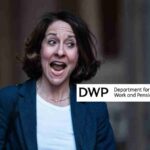Several whistleblowers have made explosive new allegations about Conservative election fraud. Speaking to The Canary, they claim the market research company they worked for started telephone polling for the Conservatives’ election campaign in November 2014 and continued up until the day of the general election in May 2015. The Canary has seen internal email evidence that appears to confirm those dates. But the Conservative Party appears to have only declared spending for work carried out by the company between March and May 2015.
Failure to properly declare election expenses is illegal.
The whistleblowers also say that the company conducted a separate, “secret” campaign for the Conservative Party. In that campaign, they called voters in key marginal constituencies “on behalf of David Cameron’s campaign” and asked them to volunteer for their local Conservative candidates. This raises serious questions about whether some of this work should have been declared by local candidates in targeted constituencies.
A Canary exclusive
Last year, a whistleblower exclusively told The Canary that London-based telecoms company Return Marketing (now known as Return Research) canvassed thousands of voters in the run-up to the 2015 general election. Alex (a pseudonym) said the company posed as an independent polling company while being funded by the Conservative Party. The company’s researchers, Alex said, were told to ask “misleading” questions that pushed voters towards the Conservative Party.
Then, another investigation suggested that the same company engaged in ‘push polling’ – polling designed to influence voters while masquerading as political research – during the EU referendum.
Now, several more whistleblowers from Return Marketing have come forward with new allegations. The Canary has verified their identities and confirmed that they worked for the company.
Return Marketing
Return Marketing was co-founded, as Haymarket Consulting, by Miles Bennington and Jonathan Hazzlewood. Both stood as Conservative candidates in council elections in 2007, and both worked for the party during its 2010 general election campaign.
Electoral Commission records show that the company carried out polling work for the Conservative Party during the 2015 general election. But while the party only declared campaign spending on Return Marketing for March, April and May 2015, the whistleblowers say the company’s work for the Conservative Party’s general election campaign started as early as November 2014.
The Canary has seen an internal email from Bennington, dated 11 November 2014, which supports their claims. It tells staff that the company is launching a new campaign “for the Conservatives” which “will directly contribute to election Conservative members of parliament [sic]”:

The same week, Return staff received another email, which included this passage:

Soon afterwards, by late November (we have redacted the exact date to protect a source), a “Conservative Calling” campaign was underway:

The “secret” campaign
Whistleblowers have told The Canary that, as well as general polling, Return Marketing ran a “secret” campaign for the Conservatives during the 2015 election. In that campaign, researchers say they were paid to call Conservative-leaning voters in marginal seats.
One of the whistleblowers, Lee (a pseudonym), told The Canary:
It was a kind of open secret really that there were two rooms… one operating the ‘polling’… and a second that specifically targeted ‘likely to vote Tory’. I was never allowed in this Tory room but understand they were asking for support including donations, putting up posters, getting them out to vote…
Sam (a pseudonym) worked on that “secret” campaign:
Obviously, [the general election campaigns] were all funded by the Conservatives but there was one campaign … [where] we were calling specifically from David Cameron’s office… You said you were calling on behalf of David Cameron’s campaign.
According to whistleblowers, the secret campaign began in March 2015.
Asking voters to campaign locally
The whistleblowers say that, in calls from the secret campaign room, researchers named local candidates, including Conservative candidates, “every single time”. They also asked voters to campaign for local Conservative candidates.
Sam recalls part of the script:
I’m going to read a list of… ways that you can help the Conservative Party and I just want you to say yes or no to each one… Going leafleting, putting up a poster, making a donation, and… knocking on doors.
And Eddie (another pseudonym) says:
You had four options on an increasing scale of involvement… Volunteering, or leafleting or… having a poster in your window… It was always very sort of genteel, quaint stuff.
Local spending
Doing market research for political parties during elections is perfectly legal, as long as it is properly declared.
When election campaigning promotes the national party, the party must declare spending. When it promotes local candidates during the ‘long’ campaign (starting on 19 December 2014) or ‘short’ campaign (starting from 30 March 2015), those candidates must declare spending. Any campaigning that does both should be split. Hence the controversy over the Conservatives’ “battle buses”.
Because it appears to have promoted local candidates, some of Return Marketing’s polling work should probably have been declared – at least partly – locally. But between them, the whistleblowers named at least 13 constituencies they targeted. The Canary has seen spending returns for six of those constituencies (some long and some short). None of the returns we saw included any spending on Return.
National spending
According to Electoral Commission records, the Conservative Party declared just £86,459 of spending on Return Marketing between March and May 2015 – and nothing between November 2014 and February 2015. The regulated period for parties in the 2015 general election began in May 2014 [pdf p10] and continued up until the general election. Party campaign spending – including on market research [pdf] – during the regulated period should be declared.
Return’s researchers were paid a starting rate of more than £8.50 per hour (rates apparently varied, so we are keeping the figure vague to protect sources), according to payslips seen by The Canary. Across Return’s two Islington buildings, the whistleblowers say there were 100 people working on Conservative calling when it started, which scaled up to 300 people as the election approached.
Taking a conservative estimate of 130 people working eight hours a day, seven days a week, Return’s election work would have cost over £1m between November 2014 and May 2015 – in staffing costs alone. Yet the Conservative Party declared less than £90,000 of spending on Return Marketing.
However, spending on Return Marketing may well have been bundled up in payments to other companies. The Conservatives, for example, declared £2.4m of spending on Conservative Campaign Director Sir Lynton Crosby’s company, CTF, and £369,099 on Tory strategist Jim Messina’s Messina Group Inc.
The Canary asked Conservative Campaign Headquarters whether any spending on Return Marketing had been bundled up in payments to other companies. A Conservative spokesperson said:
All telephone calling was correctly declared.
But the party refused to say whether spending on Return Marketing was declared as part of spending on another company.
An Electoral Commission spokesperson, meanwhile, said:
If anyone has evidence of a breach of the rules on party spending then they can submit an allegation in writing to the Commission. We will consider all allegations in line with our enforcement policy.
‘Covertly funded’
The whistleblowers say they were told to deny any links to the Conservative Party during their calls to UK voters. Alex said:
[My superiors] literally told me that if anyone asked if we were directly or indirectly funded by the Tory party, we should lie and say we were not connected in any way.
Yet the whistleblowers say that the Conservative Party covertly funded their work. Lee told The Canary:
A lot of people knew that the whole thing was funded by the Conservative Party… They would say ‘the client’, but we all knew the client was the Conservative Party.
And after The Canary’s original investigation, Channel 4 News went undercover at the company and filmed a supervisor admitting:
Pretty much the majority or all of the work we get is from the Conservative Party.
Theresa May
So we have a market research company apparently conducting a covert campaign on behalf of the Conservative Party in the 2015 general election. We have the Crown Prosecution Service considering charging up to 20 Conservative MPs over electoral fraud. And the Electoral Commission has imposed a record-breaking fine on the party.
The Conservatives won that election by a majority of just 12 seats.
Now, we have countless opposition politicians claiming that election fraud is the real reason Theresa May has called an early election. And yet the PM has just hired the exact same strategists who oversaw David Cameron’s 2015 election campaign: Crosby and Messina.
What we don’t have, apparently, is free and fair elections.
Let’s change that.
Return Research said it was unable to comment on client projects, and that all questions regarding the Conservative Party should be addressed to them directly. A Conservative Party spokesperson said: “All telephone calling was correctly declared”.
The Canary is in the process of handing evidence over to the relevant authorities.
UPDATE: This article was updated at 23:25 on 3 May 2016 to clarify the ways in which candidate and party spending are restricted during general elections.
Get Involved!
– Have you worked for a telephone polling company during an election or referendum campaign? We’re especially keen to hear from anyone who’s worked for Return Research / Return Marketing (London) or Blue Telecoms (Neath). Please get in touch. We can absolutely guarantee your anonymity.
– Have you received a call from a polling company during a general election campaign (including the 2017 campaign)? Please let us know.
Featured image via screengrab/WikiMedia

















